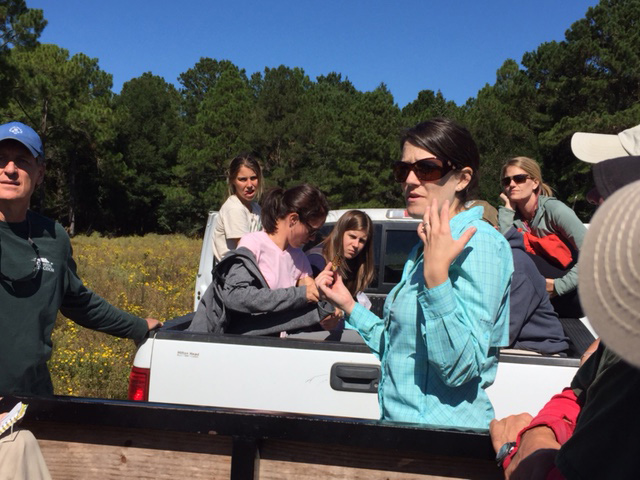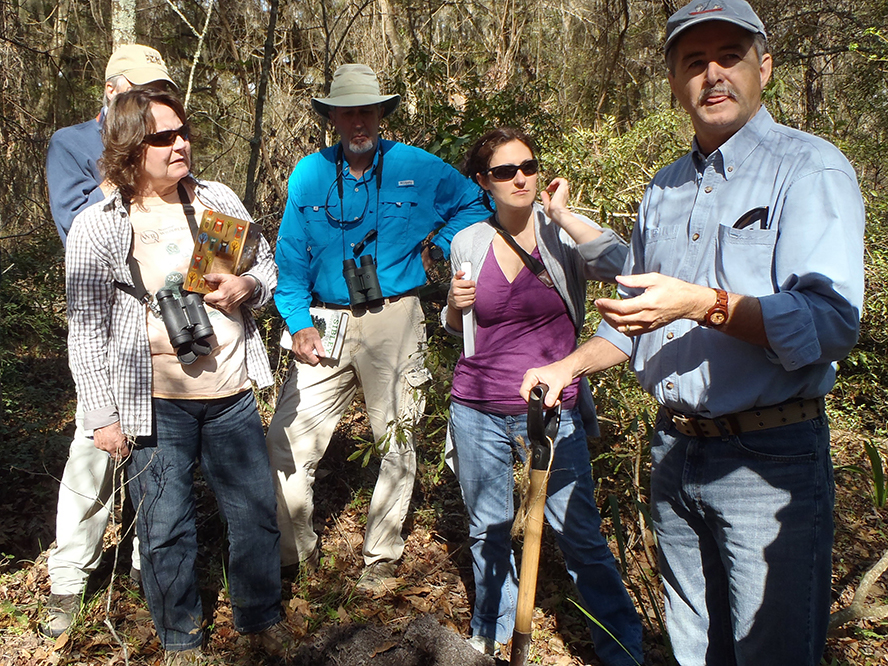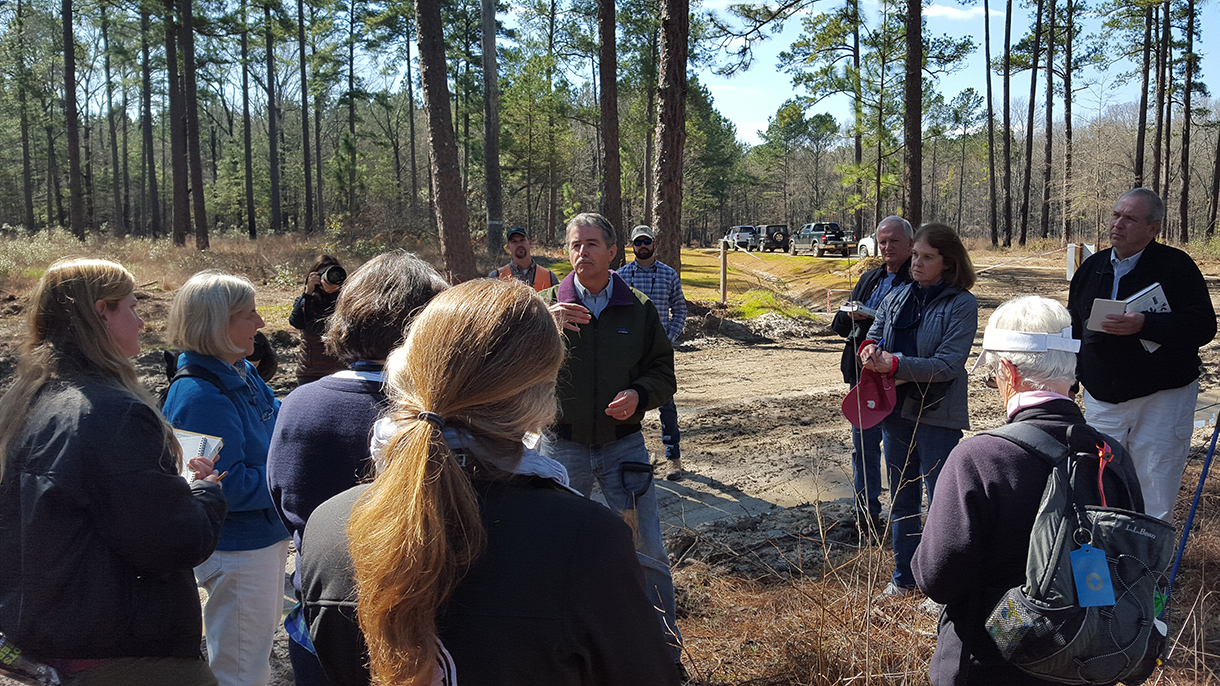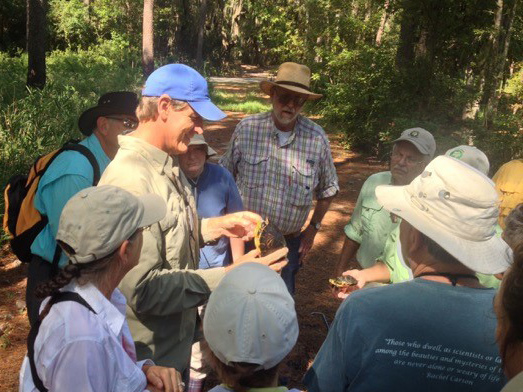The South Carolina Master Naturalist Program is a statewide corps of volunteers sponsored through the Clemson Extension Service providing education, outreach, and service dedicated to the beneficial management of natural resources and natural areas within their communities. Interested South Carolinians become Master Naturalists through training and volunteer service.

LCI and the Master Naturalist Program
The Master Naturalist program has become LCI’s “flagship” education program. In 2000, LCI helped Beaufort County Clemson Extension agent Jack Keener initiate the state’s first Master Naturalist course. After Jack’s retirement in 2002, the Clemson Extension Service asked LCI to continue the program. Since becoming the local provider for this program in 2003, it has expanded from one course per year to four classes per year, one of which is taught to teachers on Saturdays. LCI staff has developed instructional materials to support the program and a series of 12 all-day field experiences to enable adult learners to gain first hand experience in local habitats and environmental issues of coastal South Carolina. In 2005 LCI worked with Clemson University to expand the program statewide by sharing the materials it had created and its lessons learned. As of the end of 2018, over 1,000 people have graduated from the program and these graduates have created an association through which members continue to learn about the environment and conduct service projects.

What is a Master Naturalist?
A Master Naturalist is a person who has undergone specific training and who regularly volunteers time toward various projects. Typically, Master Naturalists seek to make a difference in helping to maintain the quality of our native ecosystems through training designed to help ‘read’ the landscape of the state. This includes understanding the underlying geology, specific inhabitants (birds, plants, mammals, etc.), ecology and the impacts of humans on the landscape including how we conserve our amazing natural environments. Once trained, Master Naturalists volunteer in a variety of projects. In essence, the Master Naturalist program aims to turn out volunteer citizen scientists who can positively impact the natural resources of the state.

What Do Master Naturalists Do?
Individuals who participate in the program bring diverse skills and experiences that contribute time, energy and ideas in maintaining the native eco-systems throughout the South. After receiving training, Master Naturalists may participate in many different types of volunteer activities. These might include assisting in a nature outreach program at a park, museum, nature center or school; assisting a scientist collecting bird census data; collecting data on water quality or many others.

Program Details
The Master Naturalist course is a 12-session program. Courses meet in the spring and fall on Mondays. Class sessions last from 9AM - 3PM and are held in locations throughout the lowcountry, including Spring Island. Travel time to locations varies but is usually less than 1 hour. Cost of the course is $600 - this fee covers all of the field trips, 9 guide books, a course manual, course materials, and instruction by our region's top naturalists. Travel costs and one overnight trip are not covered by the fee. Classes are open to those whose residence is closest to our site within the state.
Most classes are held outdoors and require short (but occasionally > 2 miles), moderately paced walks over occasionally uneven or difficult terrain and lengthy periods standing. Official Master Naturalist training with attendance at 10 out of the 12 sessions and thirty hours of volunteer service are required per year to become a Master Naturalist. Please contact us if you have any questions or concerns about the requirements.